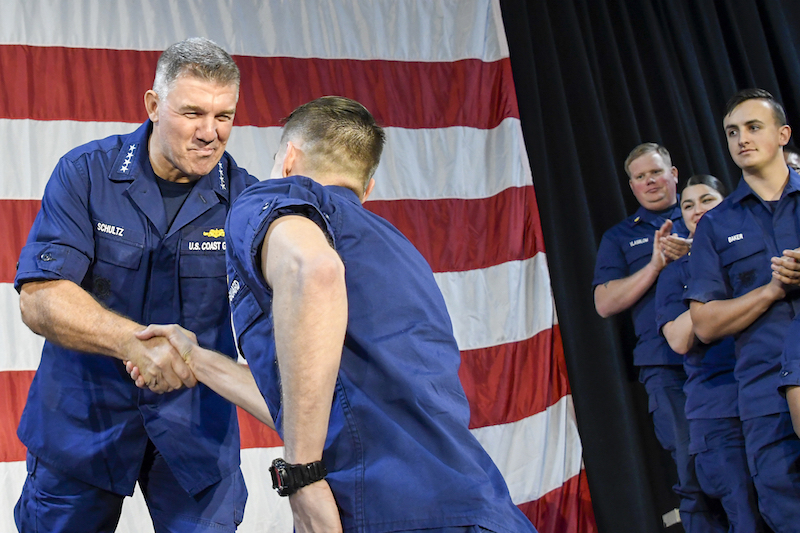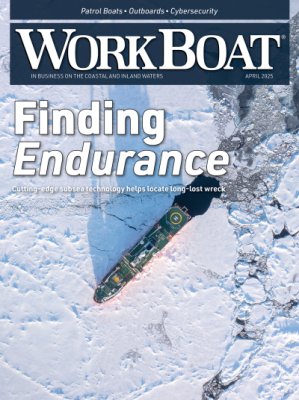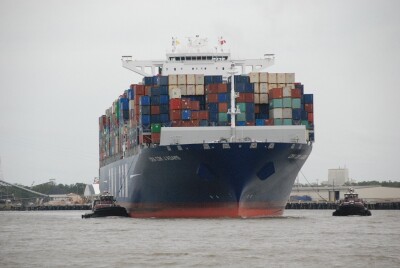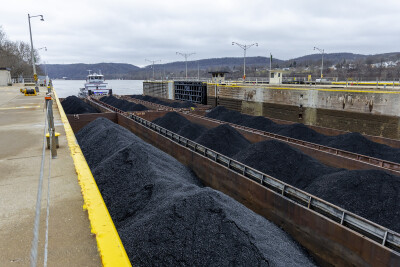In his annual State of the Coast Guard address last week, Commandant Adm. Karl Schultz acknowledged a shortage of qualified marine inspectors, and announced the addition of 80 new positions this year.
He said the Coast Guard competes “with the allure of high-paying jobs in the private sector, which makes it hard to fill this shortage.” These positions are normally held by commissioned officers but the enlisted workforce has been helping fill the gap.
He said the service is expanding the Enlisted Marine Inspector Training Program by 63 apprentice positions and adding an additional 17 inspector billets.
To improve mobility and effectiveness, the admiral said that inspectors are being armed with enhanced tools, such as “INSPECT,” a tablet application that provides access to key Coast Guard databases in the field, and is now being tested. But the commandant said that funding for training in recent years has been a problem, and he cited the need for regular training cycles for marine safety professionals “to keep pace with an increasingly complex maritime industry.”
The Coast Guard has 671 marine inspectors — 533 military and 139 civilian — who inspect U.S.-registered passenger and cargo vessels, foreign-flagged vessels calling at U.S. ports, offshore drilling units and most recently, towing vessels and barges, under the new Subchapter M towing vessel inspection program.
Congress has expressed concern about the Coast Guard’s difficulty hiring and training a marine safety workforce that has expansive technical knowledge to ensure that vessels meet federal safety standards. Lawmakers have held hearings on the issue and requested a study by the Congressional Research Service (CRS), which was published in September.
That report noted that the Coast Guard has assumed many new inspection responsibilities in recent years, including a 50% increase in its workload because towing vessels must now be inspected, as well as an expanded role in fishing vessel safety and in the construction of liquefied natural gas (LNG) terminals.
The study said that vessel safety inspections are especially critical for the aging U.S.-flag fleet because a majority are much older than the 15-to-20-year lifespan for ships working in the global bluewater industry. The sinking of the U.S.-flag cargo ship El Faro during a hurricane near the Bahamas in 2015, causing the loss of 33 lives, renewed attention to the Coast Guard’s inadequate inspector force.
One problem is that as a military organization, the Coast Guard frequently rotates its staff among various duty stations so that personnel may not develop the knowledge and experience required of a proficient marine inspector or investigator, according to the CRS.
Another issue is that working in marine safety is not considered an attractive career path at the Coast Guard, lacking both status within the organization and promotion opportunities. “This may be thwarting efforts to boost this mission’s workforce,” the report said.
The Coast Guard has pledged on many occasions to improve the quality of its inspection workforce and make assignments attractive long-term careers, but the CRS said these promises have lacked followup.
“Government audits dating to 1979 have been consistently critical of the proficiency level of Coast Guard inspectors and accident investors,” the report said, noting that reorganizing the marine safety function under a civilian agency, perhaps as part of a larger reorganization of navigation functions in the federal government, might improve the quality of inspections and investigations. But, the report added that other federal agencies with transportation safety inspection duties have had similar issues with retaining experienced personnel.
The American Waterways Operators, whose members in the towboat and barge industry are now coming under federal inspection, welcomed the news of more marine inspectors.
Expanding the workforce is not driven solely by the Subchapter M inspection program, although the addition of some 5,700 inspected vessels is a big demand on the Coast Guard, said Jennifer Carpenter, AWO president and CEO.
“The Coast Guard is very focused on making sure that it doesn’t lose critical skill in the inspection field and that inspectors have mobile access to Coast Guard databases,” she said. “They are also keenly aware that there have been some significant casualties involving Coast Guard-inspected vessels, and they want to make sure that never happens again.”





